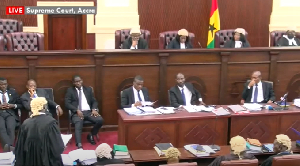Opinions of Thursday, 24 August 2023
Columnist: TEIN TTU NEWS
The insensitivity and wickedness of electricity and water tariff increments amidst hardship in Ghana
In a time when many Ghanaians are facing economic hardship, the recent increments of 4.22% and 1.18% in electricity and water tariffs respectively have sparked outrage and accusations of insensitivity and wickedness. This write-up delves into the reasons behind these sentiments and highlights the potential impact of such actions on the citizens.
Economic hardship:
Ghana has been grappling with economic challenges, including high inflation rates and unemployment. This has resulted in financial difficulties for many individuals and households. In this context, any increase in the cost of basic utilities like electricity and water can significantly strain already stretched budgets.
Affordability concerns:
The tariff increments directly impact the affordability of essential services for the average Ghanaian. As prices rise, individuals and families may struggle to meet their monthly bills, potentially leading to disconnections and limited access to these vital utilities. This not only affects their daily lives but also hampers productivity and overall well-being.
Disproportionate impact:
The burden of these tariff increments falls disproportionately on the most vulnerable segments of society, such as low-income earners and marginalized communities. These individuals are already grappling with numerous challenges, making it difficult for them to absorb additional financial burdens. The lack of consideration for their struggles exacerbates inequality and amplifies the sentiment of wickedness.
Lack of Transparency:
Critics have raised concerns about the lack of transparency surrounding the decision-making process leading to the tariff increments. Many citizens feel that they were not adequately consulted or informed about the reasons behind these increases. This lack of transparency erodes trust and fuels the perception of insensitivity and wickedness on the part of the government for the decision.
Exploring alternative solutions:
Rather than burdening citizens with increased tariffs, it is essential to explore alternative solutions. This could involve improving the efficiency of electricity and water resource management, addressing corruption and mismanagement issues, and seeking innovative approaches to reduce costs without compromising service quality. By considering these alternatives, the government can demonstrate a genuine commitment to the welfare of the citizens.
The recent increments in electricity and water tariffs amidst the prevailing hardship in Ghana have elicited widespread criticism and accusations of insensitivity and wickedness. The government must recognize the impact of such decisions on vulnerable segments of society and prioritize their well-being. Transparent communication, consultation, and the exploration of alternative solutions can help alleviate the burden on citizens, ensuring that necessities remain affordable and accessible for all.













